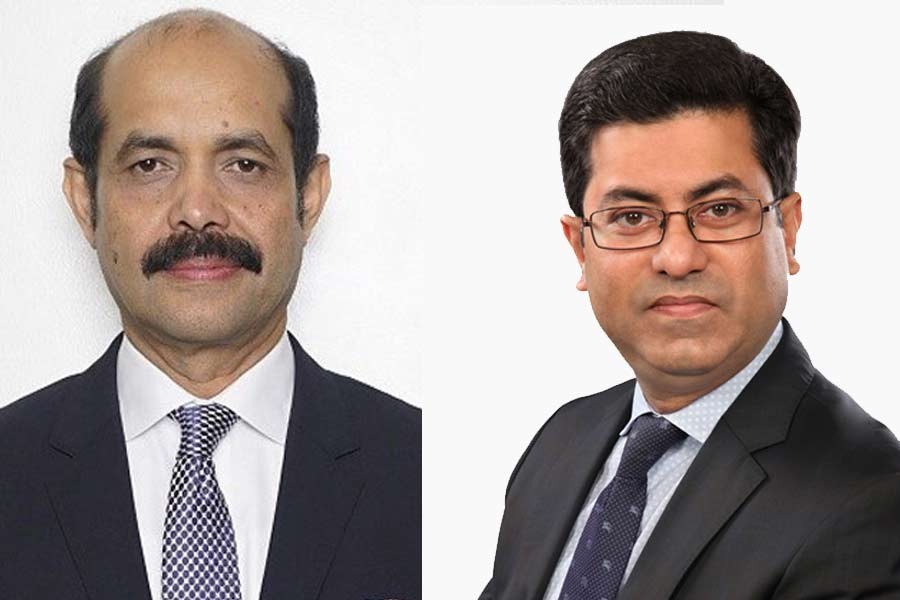Some weeks back, the issue of colour-based zoning of Dhaka and Chattogram cities to help tackle the spread of COVID-19 got national attention. The zoning was seen as necessary to enforce lockdown in areas with high infection rates. But the issue dissipated as the health authorities were found dillydallying for no genuine reason.
Over the city's zoning, the helplessness of the mayors of two city corporations of Dhaka was very much evident. They wanted the zone-based lockdown to take place in city areas with a high concentration of COVID patients. But that did not happen, because the health authorities were unwilling.
During the ongoing pandemic, the mayors of major cities, as well as chairmen of small pourashavas (municipalities) should have played a proactive role. They are directly elected people's representatives and they have certain responsibilities towards their electorates.
The mayors, particularly of the two city corporations of Dhaka, should have jointly briefed the media daily--- a job until late last week was done by a high official of the directorate general of health services.
The city mayors in Bangladesh, unlike their counterparts in India, do exercise more power. But their authority is nowhere near that of the mayors of cities of the USA and many other developed and developing countries.
Mayors of Indian cities being elected indirectly by the popularly-elected councillors are practically titular heads of corporations. The commissioners appointed by the government being chief executives are authorised to run the show.
In the USA, city governments oversee almost everything---from law enforcement to sanitation, from housing to transportation. The city mayors have been playing a leading role during the ongoing pandemic.
The city corporations here in Bangladesh despite being people's representative bodies do not have much to do barring constructing roads, cleaning garbage, clearing surface drains and dealing with the mosquito problem. In the matters of many public welfare issues, they are more dependent on the whims of a host of government agencies.
At least three past elected mayors belonging to rival political camps raised the issue of giving more authority to the city corporations. Two of them wanted the transformation of Dhaka city corporation into a city government. But their proposal, it is understood, received covert opposition from both political and bureaucratic quarters and was never materialised.
The Dhaka City Corporation was split into two in 2011 to ensure better civic facilities to the city residents. The law enacted to give effect to the move, however, did not empower the two city corporations to exercise their authority over the public sector development and service agencies operating in city areas. The mayors do have a coordinating role, but the legal provision concerned does not authorise them to take appropriate actions against the errant agencies or their officials.
In such a situation, the residents of Dhaka city have been exposed to a host of problems. The major problems that the city residents have been enduring for decades include traffic gridlocks, water-logging, and frequent digging of roads. Some past mayors did want to improve the situation, but they could not make headway, for they did not have enough lawful authority.
There is, however, a wind of change, lately. The two newly elected mayors, particularly the mayor of Dhaka South City Corporation (DSCC), since the day one after their election have been talking tough.
The agencies that have developed a habit of giving the city corporations cold shoulder are found listening to the mayoral speeches in rapt attention these days. It could be that heads of these agencies are feigning to be loyal, for they are aware of the political might of one of the mayors.
The two mayors, some days back, admonished the Dhaka Water and Sewerage Authority (DWASA) for its failure to fix the problem of water-logging in Dhaka city. They suggested the government to transfer the responsibility of maintaining the city's canals to the city corporations.
There is no denying that most city residents, who are unaware of DWASA's responsibility, do usually blame the city corporations for water-logging during the monsoon. Since the DWASA has failed utterly to fix the problem, the government should ask both DSCC and DNCC to do whatever is needed in this respect.
DSCC mayor Barrister Sheikh Fazle Nur Tapash speaking at an event, organised by the Ministry of Local Government, Rural Development and Cooperatives, late last week sounded tough on the issue of coordination in city development activities. He asked all agencies to submit their Dhaka-centric development plans and programmes to the city corporations by October 01 next for the sake of better coordination. Such coordination, he said, was necessary to avoid digging off roads repeatedly by separate development agencies. He warned that agencies failing to submit their plans within the stipulated date would have to wait until October 2021 to get clearance.
Barrister Tapash was also highly critical of the Rajdhani Unnyan Karipakhha (RAJUK). He accused the state city development agency of becoming a real estate company that is more interested in doing business than in proper development of the city.
The DSCC mayor has echoed the sentiment of most residents of Dhaka city. The RAJUK is responsible for killing off most natural water bodies in Dhaka. Instead of protecting those, the RAJUK on its own has filled up vast water bodies and also helped others in doing the same mischief.
The incumbent mayors of Dhaka city corporations are demonstrating all good intentions to rid the city of some major civic problems. But they need legal backing. The Ministry of LGRD should come forward and fill up the legal vacuum if there is any.


